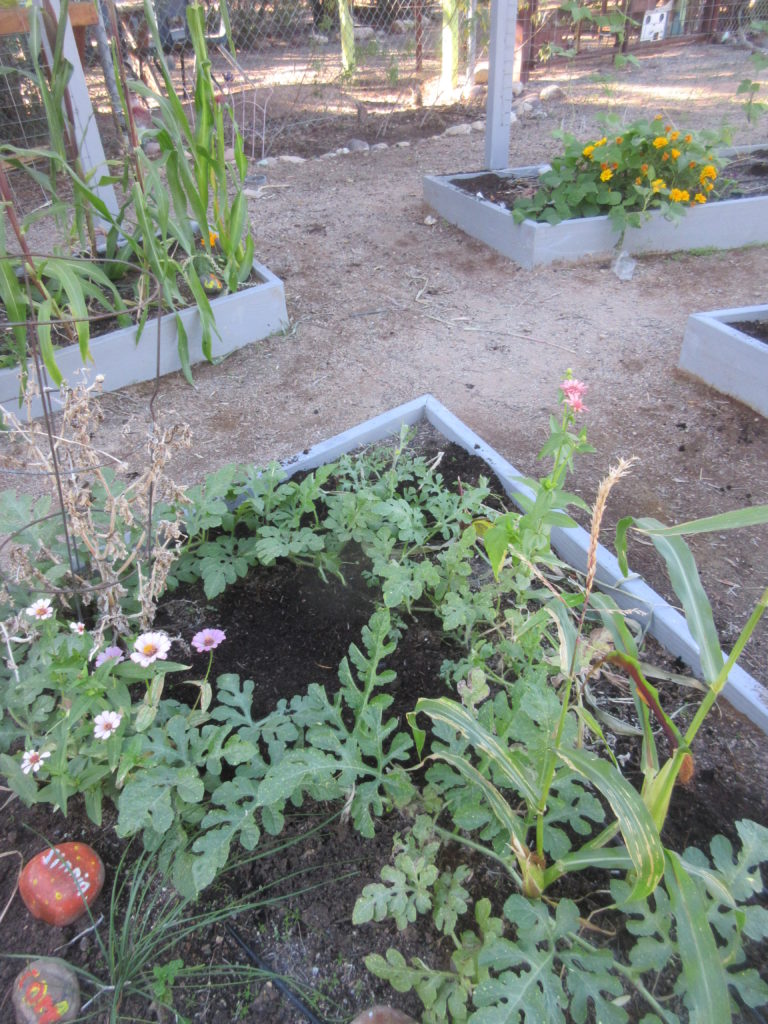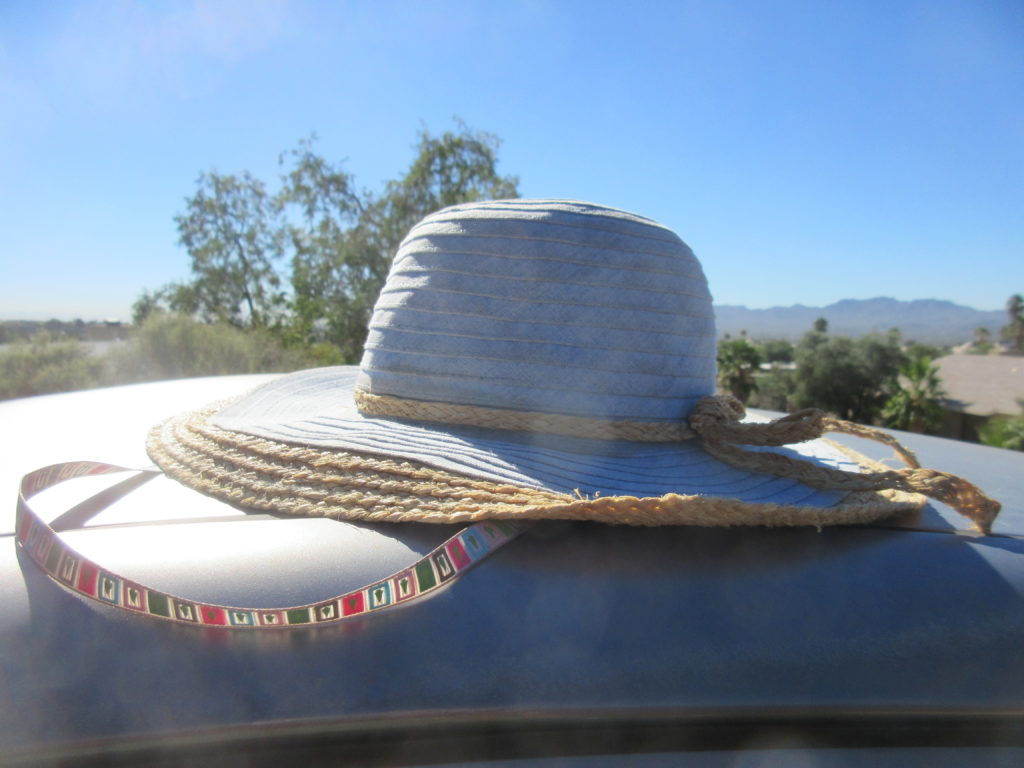“I had a lot of fun in the garden yesterday!” beamed one of my elementary students entering school on Wednesday. The boy’s smile and his forwardness meant as much as the words, since he has made great progress in participating with his garden group. I’m also thankful that I wasn’t imagining how great the previous day had gone. I love my part-time job at Miles Exploratory Learning Center, a pre-K-8th grade school in TUSD. This Tuesday was a jam-packed cross-section of the type of work school garden coordinating entails.
Delegating and Directing
High school students needing job skills and a garden with tons of tasks available are a neat combination. This particular group from Tucson High had not used hula hoes before, so I got to teach the concept of pushing the tool to weed a path. For the weed that was too tough, we switched to a shovel. “You got it!” I cheered, then left the group in the capable hands of their supervisor. Delegating that section of the garden to a new crew helped me focus on other projects.
Planning Ahead
Later the same morning, a new committee came together to plan our future chicken coop. I was the only one at the meeting who has never kept or constructed for chickens, so my learning curve was steep. We discussed and agreed on a site, tossed around new-to-me vocabulary like “joists” and “nesting boxes”, and chose a reliable model of coop. As the point-of-contact, I took lots of notes so I can move forward with pitches for funders and volunteers. Having the real experts available for advice is what will make the project and the coop itself strong.
Keeping Going

Meanwhile, projects from last year linger. On Tuesday I was thankful for the reminder to show up at the Mustangs for Change club meeting during lunch. Those middle school students will help package the chamomile flowers a different group grew and dried last year. The ramada that parents and I started in April is almost done – I suggested some dates for the next (final?!) workday and made sure to let all the students this week pass through the frame to notice changes and ask questions. The pile of rocks almost has a home on the mounds of soil students are shifting in front of the school. “Water harvesting earthworks” is the official term, and the “Do we get to dig today?” request from students is the immediate and music-to-my-ears reality.
Teaching!
All elementary students at Miles have an opportunity to attend weekly or bi-weekly garden classes, which I teach or co-teach. The kids really bring the garden to life.
Room 7’s intermediate-grade groups measured the depth of their water harvesting basin, then dug it wider – not deeper – to stay within our 4” – 8”-deep goal. Most kids even remembered to start at the “zero” end of the ruler, meaning maybe last year’s measuring practice paid off.
Room 1’s Tuesday group, primary, made use of the space created by Monday’s group who removed old corn stalks. In that space – a basic need for plants, and the keyword of the lesson – they added spinach starts, and carrot and lettuce seeds. The irony, of course, is that the kids must stay close together around their vegetable bed, when their natural state is to disperse throughout the garden. I’ve learned to keep the lesson as hands-on as possible to maintain focus.

Room 2 was a larger primary group, so the kids and adults divided and conquered to finish a new flower bed. The painters practiced careful lettering for signs, the builders lugged and arranged decorative bricks for straight lines and a large circle, and the planters matched seed packets to signs before we sprinkled in six different species. I barely remembered to water the new additions. We turned the hose on with a flourish, kids rinsed hands and went back to their classroom, and I caught my breath briefly before cleaning up.
Hazards of the Job
The student threatening me with a rock, the student waving a rake around just for fun, the burned tongues from eating sautéed zucchini too fast the day before, and my sore hip at the end of most days from lifting wheelbarrows and generally rushing around – those were the potential and realized injuries as part of a day’s work on Tuesday. We were all OK in the end, and most kids used phenomenal control of themselves and their tools, and cords and hoses too. The worst part of Tuesday was embarrassing myself in front of the principal by simply talking too fast and not listening to her question. I continue to learn, just like my students.
Going Home
At the end of the day, I dumped grey water on the fruit trees, hashed out some more chicken notes, checked in with a classroom teacher, and finally locked up the garden. I turned up the radio in my trusty Corolla for the snails-pace commute from Central Tucson to my home on the Northwest side. On this particular Tuesday, my high from a good work day plus the relief of having voted that morning, propelled me through making a decent dinner and staying “on” for a few hours with my husband and boys. I was horizontal on the couch by 8:00 p.m. anyway, which is typical. I neglected my stretches and suffered an extra-sore hip on Wednesday. Since the injury originated with childbearing, I don’t actually get to blame my paid job. Rather, I feel fortunate that I get to work outside, help hundreds of others do the same, and connect with talented volunteers and staff who also believe in the importance of school gardens.
Garden coordinating fills part of each week. Under my garden teacher hat, I’m still scheduling private and group lessons, and testing plants and methods at home and as a volunteer at my sons’ school. May I help you, your school, or group get out and dig in the dirt too?


